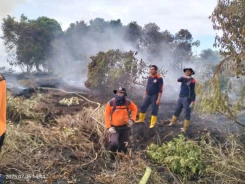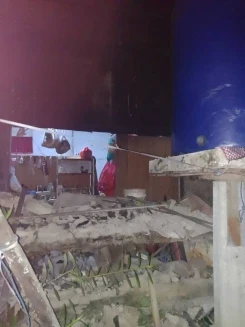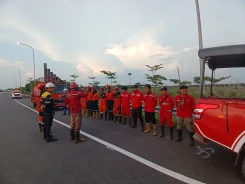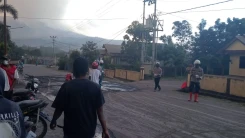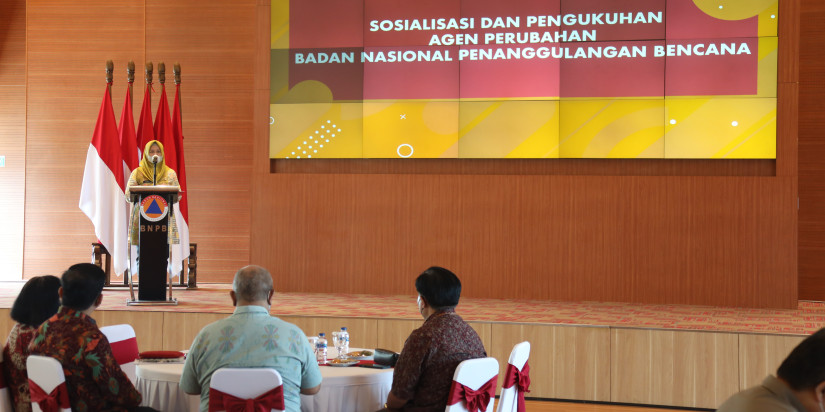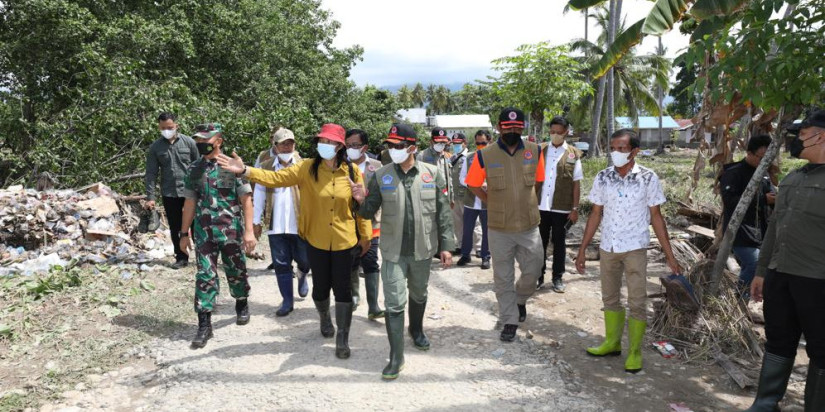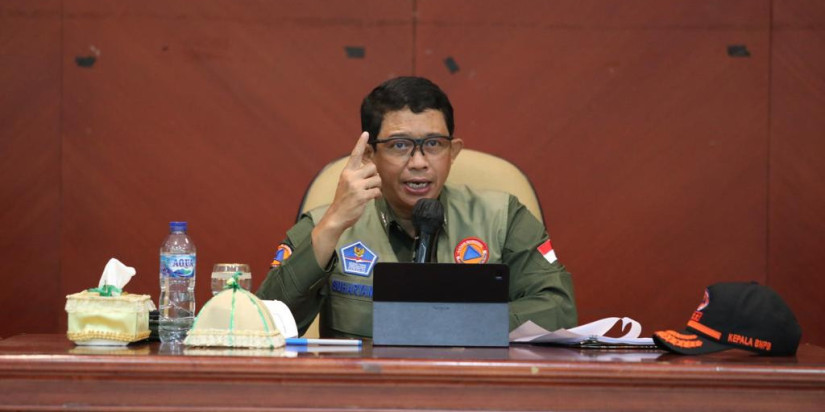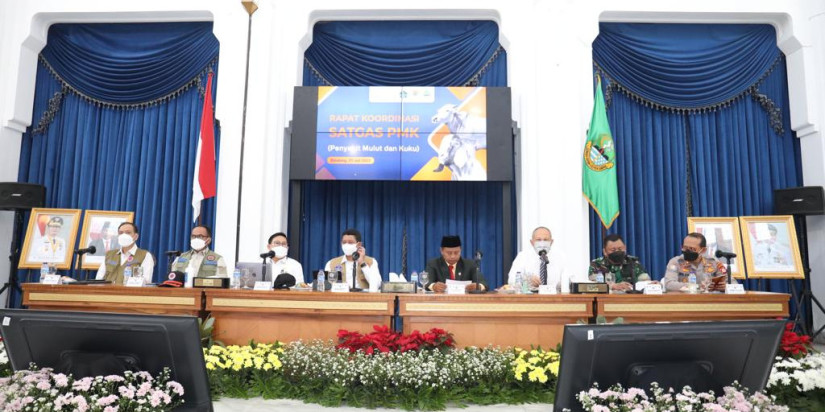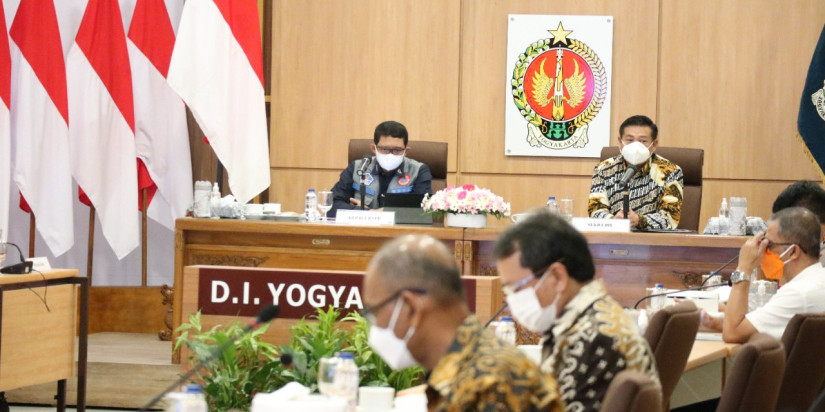National Capacity Can Still Handle the Lombok Disaster, Without Having to Declare National Calamity Status
20 Agt 2018 09:16 WIB

Foto : National Capacity Can Still Handle the Lombok Disaster, Without Having to Declare National Calamity Status ()
The Social Media is buzzing with the polemic of whether the government should declare status of national calamity for the Lombok earthquake. Several major shocks have struck several times causing additional fatalities, structural damage and economic losses.
Since the first major earthquake at magnitude 6.4 on 29 July 2018, which was followed by magnitude 7 (5 August 2018), magnitude 6.5 (19 August 2018 afternoon), and magnitude 6.9 (19 August 2018 evening) , there has been 506 fatalities, 431,416 displaced people, 74,361 unit of houses damaged and other impact. Estimate for total loss and damage is at IDR 7.7 trillion.
With such significant impact, there are many who proposed to declare this disaster as a national calamity. The declaration is regulated by the Government Regulation Number 21/2008, which stipulates that the status of emergency response will be determined by the Central Government or Local Government in accordance to the level of disaster. For national level, the declaration will be made by the President, for provincial level by the Governor, and for Regency/Municipality level by the Regent/Mayor.
The consideration for the determination of status and level of disaster will be based on 5 main variables:
1. number of victims;
2. loss of physical materials;
3. damage to infrastructure;
4. size of affected territory;
5. and social economy impact.
Those indicators are not enough. There is one additional basic indicator that is difficult to measure: the existence and continuous functionality of the local government. Basically whether the local government is still functioning or whether it is collapsing. Whether the head of the local government is still functioning, supported by the staff members, or not.
The Aceh tsunami in 2004 was declared as a national calamity because at the time the local government, at the provincial level as well as the regency/municipality level, including the provincial military command and the provincials police, collapsed and unable to mobilise effective response. As the local government was paralysed the central government took over the emergency response. Because of that, the government declare a state of national calamity. This means that all the responsibility of the local government was taken over by the central government, including responsibility to perform public administration, not just the management of disaster and emergency response.
With the declaration of national calamity, the government is also opening its door to international assistance from other countries and the international community to provide humanitarian assistance. This is an agreed mechanism under the Geneva Convention. The international assistance may cause additional issues related to politics, economic, socio-cultural, as well as security.
So we need to understand that there are consequences to the declaration of the state of national calamity. Since the Aceh tsunami in 2004 until the present day, there has never been any disaster that was considered as national calamity. This is because Indonesia has a lot of lessons learned from handling the Aceh tsunami in 2004.
The main thing at the moment is to manage the impact of the disaster and provide assistance to the victims. The current national capacity is still capable to handle the emergency response phase, even up to rehabilitation and reconstruction phase afterwards. Even without having to declare state of national calamity, the scale of emergency response is already at national level. The central government continue to provide assistance to strengthen the local government, either at the provincial level or at the Regency/Municipality level. The support can take multiple forms, including budgetary support, personnel support, logistical support, equiopment, administrative and managerial support.
The emergency reserve fund of IDR 4 trillion under the management of the Ministry of Finance is ready to be mobilised according to needs with the direction from BNPB as the user. If it is insufficient, the Government is ready to increase the fund, after consultation with the Parliament. The fund to support rehabilitation and reconstruction of Lombok, estimated at IDR 7 trillion, will also be budgeted by the central government.
The President will soon issue Presidential Instruction on the acceleration of the Emergency Response to the Lombok Earthquake. The central government will provide full support to the provincial, regent, and municipal governments, as well as, the most important, provide assistance to the community.
The President himself continues to monitor personally the emergency response operations in Lombok. He even visited Lombok to give guidance to the response operations.
Many people do not have complete understanding of disaster management, including the determination of status and level of disaster. Many think that the declaration of national calamity will increase accessibility to national resources. However, even without such declaration, the national resources and capacities are being mobilised. We are mobilising almost all of our resources. We have been deploying personnel from the central government, such as from the Armed Forces (TNI), the Polri, Basarnas, relevant ministries and other stakeholders. There are relief items from the BNPB, TNI, the Polri, and others. There are field hospitals from the Ministry of Health and the TNI. The Ministry of Social Affairs provide assistance and additional allowance. The Ministry of Public Works and Housing and the Ministry of Education and Culture collaborate to provide emergency schools. As well as other assistance coming from other sectors. Everyone has mobilised resources to support the emergency response. Therefore, the declaration of national calamity is not required.
Disaster management, in particular emergency response, is one of the responsibilities of the local government. The Head of the local government is the responsible party for the management of disaster in their area of responsibility. The central government will be there to support or enhance the capacity of the local government.
In practice, almost all emergency response operations for major disasters in Indonesia received support from the central government. However, the control and responsibility of the emergency operations remain on the hands of the local government, without having to declare national calamity. The emergency response operations to the earthquake of Sumatra Barat in 2009, the Merapi eruption in 2010, the Mentawai tsunami in 2010, Wasior flash flood in 2010, Jakarta floods, 2013, Manado flash flood 2014, forest fires 2015, Sinabung eruption 2012, Kelud eruption 2014, Pidie Jaya earthquake 2016, and other disasters, mostly required mobilisation of national resources and assistance from the central government, without having to declare state of national calamity.
For every high-casualty disaster event, there is always a call to declare national calamity. However, this was often proposed without consideration of the mechanism as well as the consequences.
We think that there is no need to continue the polemic in declaring state of national calamity. The most important thing is to ensure rapid assistance to the affected community. The local government is still standing and still able to serve the public. The central government stands ready to help. The scale of the emergency operation is already national. The national capacity and resources are still capable to handle the emergency phase as well as the post-emergency.
Let us stay together. Disaster is a humanitarian affairs. Let us set aside differences in ideology, politics, religion and otherse, in order to assist the victims. The people of Lombok need our help. Let us put our energy together to assist them.
Sutopo Purwo Nugroho
Head of Data Information and Public Relations Centre of BNPB
Admin



